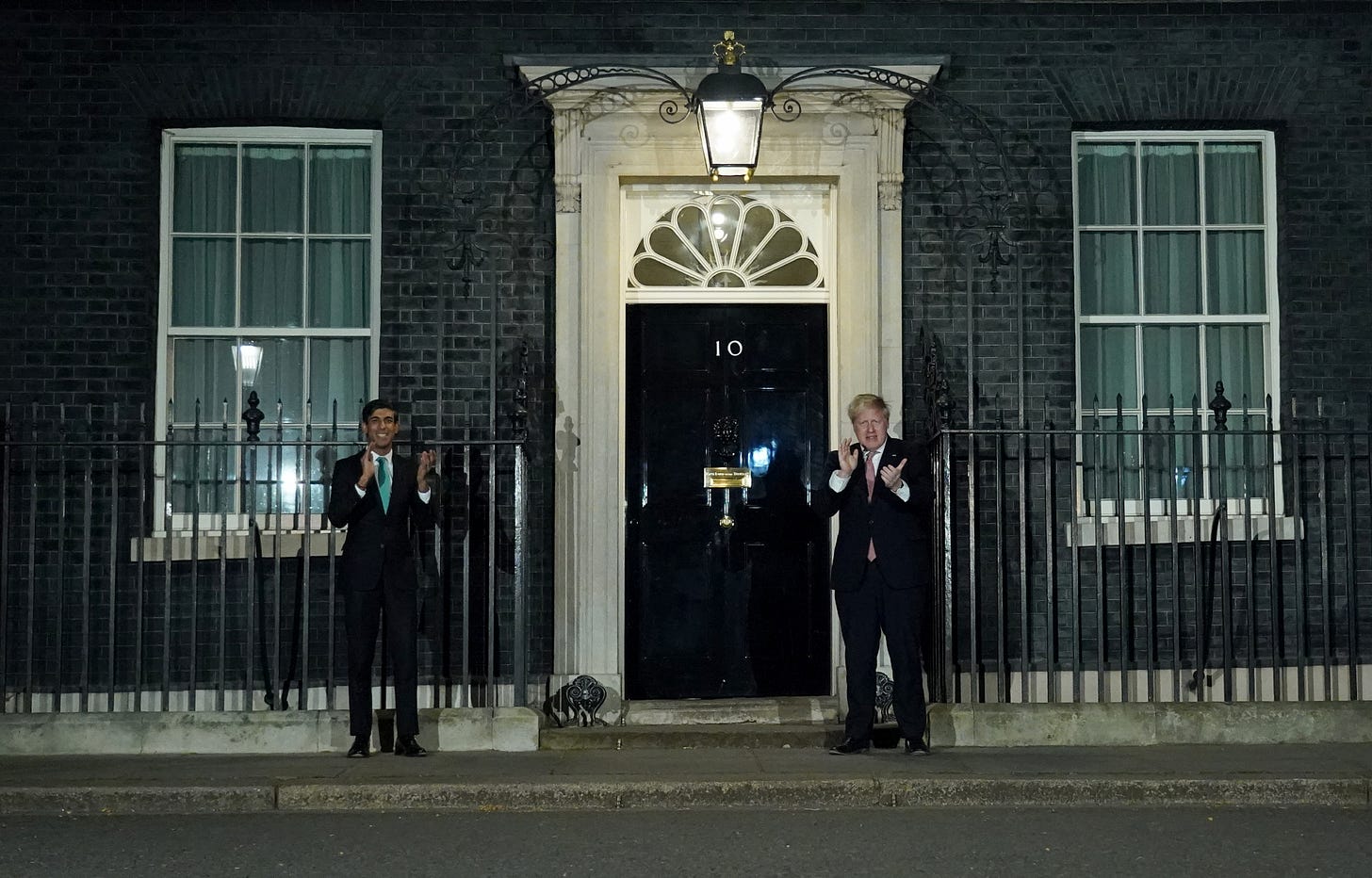Voters Think Jeremy Hunt's Autumn Statement Will Help the Rich
New poll finds just one-in-five voters expect to be personally better off due to the measures announced by the Chancellor
In this week’s Bienkov Briefing:
Only one-in-five think Hunt’s Autumn Statement will make them better off
Poll finds voters think measures will mostly help the upper classes
Fund public services over tax cuts, say voters
Voters turn on Government’s handling of the pandemic amid Inquiry revelations
Voters believe the measures announced by Jeremy Hunt in his Autumn budget statement this week will mostly help the rich, according to an exclusive new poll conducted for Byline Supplement.
The Chancellor this week trumpeted a series of pre-election tax cuts, with a central pledge to cut National Insurance.
The announcements were heralded by supportive newspapers as the “biggest tax cuts since the 1980s” which they suggested were targeted at “ordinary” workers.
However, analysis by the IPPR think tank found that almost half of the benefit from Hunt’s NI cut will be felt by the top fifth of earners, with most of the benefit felt by those in London and the South East.
Meanwhile independent analysis by the Institute for Fiscal Studies and the Government’s own Office for Budget Responsibility found that overall taxes are set to rise to their highest level in more than 70 years under the Government’s plans.
These findings are supported by our poll, with 54% of voters now telling pollsters We Think that they believe the measures announced this week will mostly help higher earners, compared to just 21% who believe they will mostly help those on low incomes.
Overall voters believe the statement is targeted more at the upper class than the general population. 43% said the upper classes would benefit most from Hunt’s announcements, compared to 22% who think the middle classes will benefit most and just 11% who think working classes will benefit most.
Dr No Feel Good
Despite the spin surrounding the Chancellor’s tax announcements, most voters do not believe they will be personally better off as a result.
According to our poll just 19% of voters believe they will be better off as a result of the Autumn Statement, compared to 33% who believe they will actually be worse off. The remaining 48% believe the measures will make no difference to them either way.
This is backed up by the experts, with the OBR this week suggesting that rising inflation means that the average Brit has suffered the biggest collapse in their living standards since the Second World War, over the last four years.
Tax or Spend?
This week’s Autumn Statement also paved the way for a new period of austerity, with £19 billion of public sector cuts scheduled for future years under the Chancellor’s plan.
Hunt justified the plans by suggesting that the public sector had become too large in recent years and suggested that cutbacks were required in order to fund tax cuts.
However, our poll finds that voters are deeply split on the issue, with most voters favouring public spending over tax cuts.
According to our poll 52% of voters believe it is more important to them and their families for public services to be properly funded, compared to 48% who believe it is more important for their own taxes to be cut.
On which party is most likely deliver on these priorities, 52% said that a Labour Government would be most likely to properly fund public services, compared to just 20% who believed the Conservatives were best placed to do this.
On tax voters were much more split, with 36% saying a Labour Government would be most likely to cut their taxes after the general election, compared to 36% who said the same of the Conservatives.
Eat Out to Help The Virus
Our poll also found that voters appear to have had second thoughts about the Prime Minister’s previously popular Eat Out to Help Out scheme.
The Covid Inquiry this week revealed that the scheme, which subsidised meals out during the first summer of the pandemic in 2020, was brought in without first consulting the scientific experts.
The Government’s former Chief Scientific Adviser Patrick Vallance and current Chief Medical Officer Chris Whitty told the Inquiry that they would have advised against implementing the scheme due to the risk of increasing transmission of the virus.
Our poll found that voters are now more likely to say the scheme was a bad, rather than good idea.
49% of voters told We Think that the scheme was a bad idea in hindsight, compared to 31% who still believe it was a good idea.
The poll also casts doubt on public trust in the Government’s handling of the pandemic.
Asked if they believed ministers had “followed the science” as claimed during the pandemic, just 28% said they believed they had, compared to 52% who said they believed they had not.




